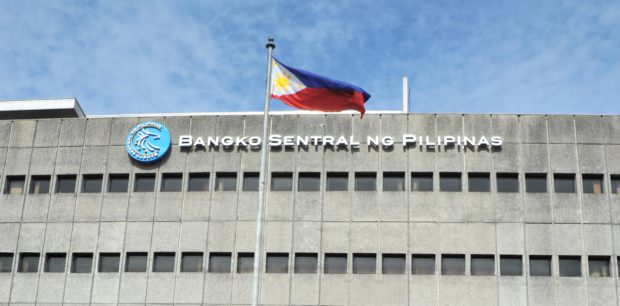Short-term local debt yields rise ahead of anticipated BSP rate hike
MANILA, Philippines—Rates of short-dated T-bills rose across the board on Monday (June 20) as the local debt market braced for the anticipated, possibly upsized, rate hike by the Bangko Sentral ng Pilipinas (BSP) on Thursday.
As it capped its borrowing rates, the Bureau of the Treasury (BTr) raised only P10.5 billion out of the P15 billion, or P5 billion from each of the three tenors, it planned during Monday’s fund-raising. Government securities eligible dealers (GSEDs) pitched to lend a total of P22.6 billion, or 1.5-times bigger than the amount the BTr wanted to borrow.
However, as bid rates shot up, the BTr awarded only P3.07 billion in the benchmark 91-day treasury bills. The average yield of three-month debt climbed to 1.759 percent from 1.572 percent last week.
The BTr raised P3.62 billion from 182-day IOUs at 2.132 percent, up from 1.934 percent previously.
The 364-day securities were awarded at an average annual rate of 2.454 percent, higher than last week’s 2.325 percent, such that borrowings were capped at P3.85 billion for the longest T-bill tenor.
“As expected, markets asked for a high premium to cushion against upward adjustments in rates delivered by the US Federal Reserve and to be followed on Thursday by the Monetary Board to quell rising price pressures,” National Treasurer Rosalia de Leon said.
“While incoming BSP governor Felipe Medalla spoke of gradual tightening, some analysts still see a 50-basis point (bp) move following the 75 bps delivered by the Fed to slash inflation,” which hit four-decade highs in the US, De Leon added.
Asked if the BTr keeps rate thresholds for its T-bill borrowings and if these would be kept amid aggressive rate hikes by central banks globally, De Leon replied: “There are factors being considered in the auctions, including market levels. The pace of normalization would need to be calibrated against the impact on the economy, particularly as we still have to fully recover from the pandemic.”
Analysts were divided on how much the BSP would hike key interest rates on Thursday: the majority, including think tanks Capital Economics, DBS Group Research, Goldman Sachs Economics Research, HSBC Global Research, Moody’s Analytics, as well as Pantheon Macroeconomics, had bet on a 25-bp increase.
But some, like ING and Security Bank, did not discount the possibility of a 50-bp hike as the BSP had been deemed “behind the curve” in addressing elevated domestic inflation. The rate of increase in prices of basic goods hit a 3.5-year high of 5.4 percent in May, bringing the five-month headline inflation average to 4.1 percent, above the 2-4 percent target band deemed by the BSP as manageable price hikes conducive to economic recovery.
TSB

